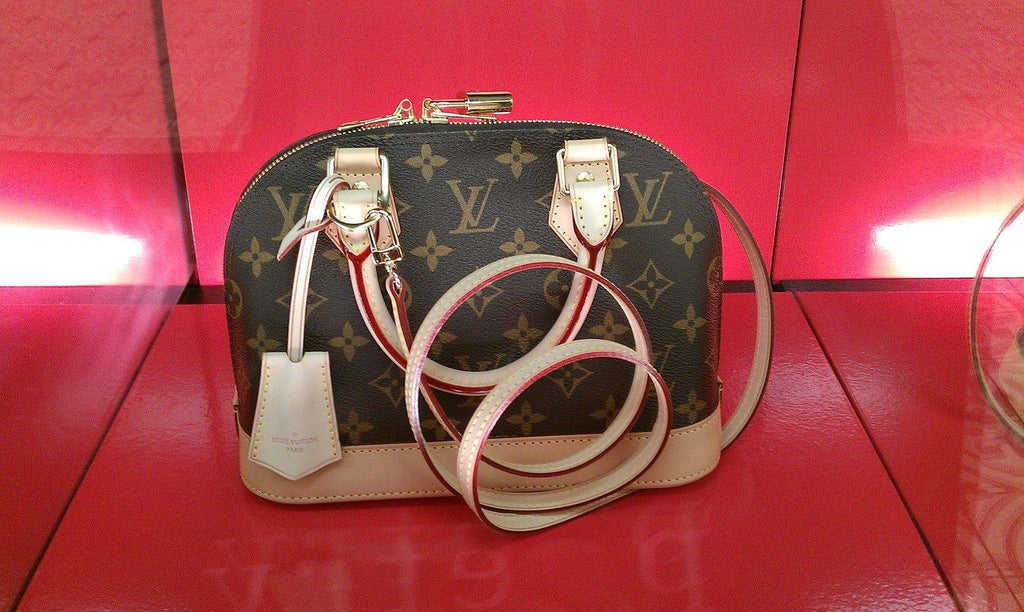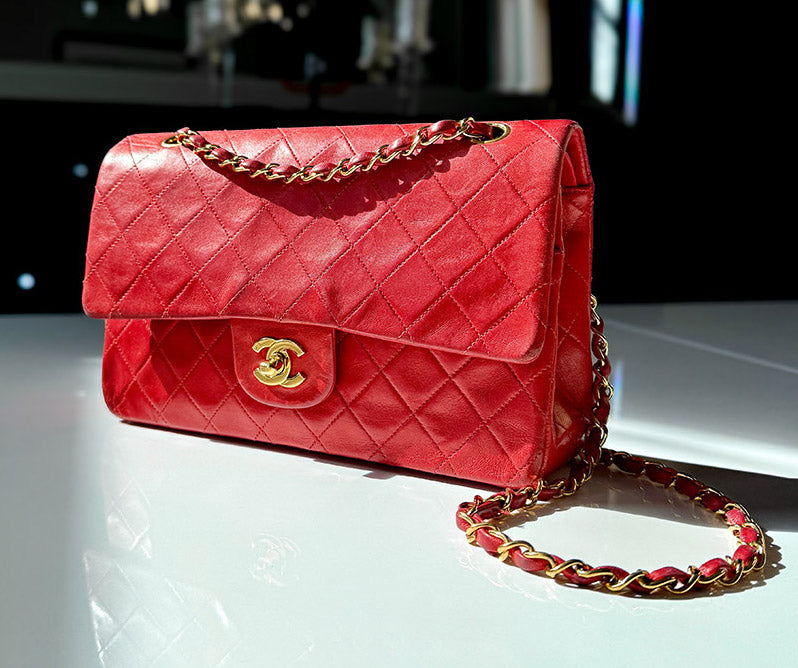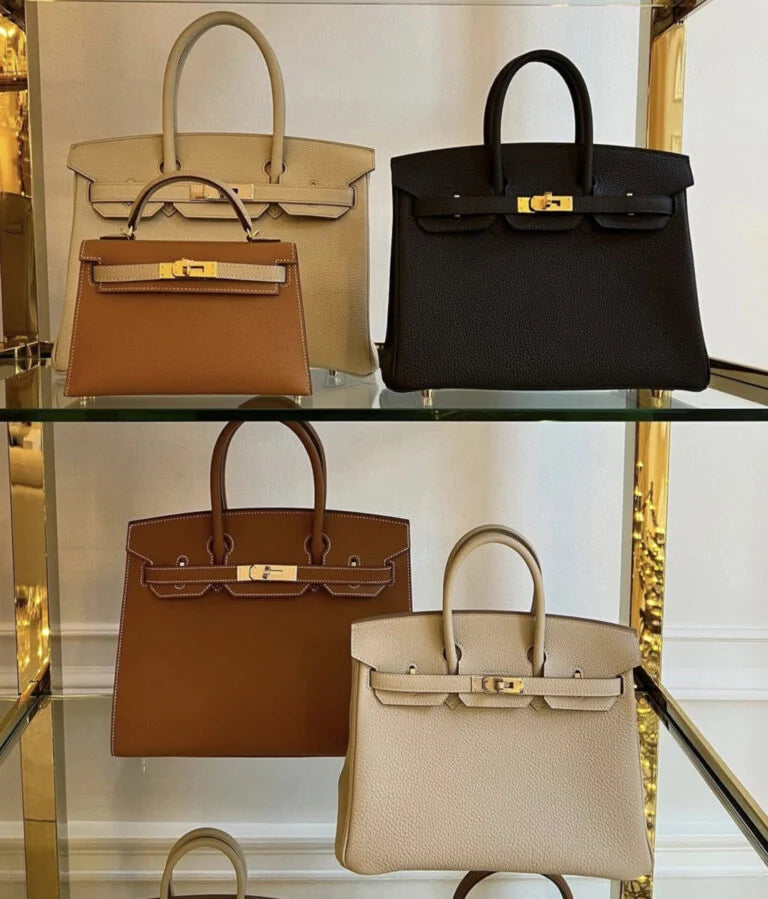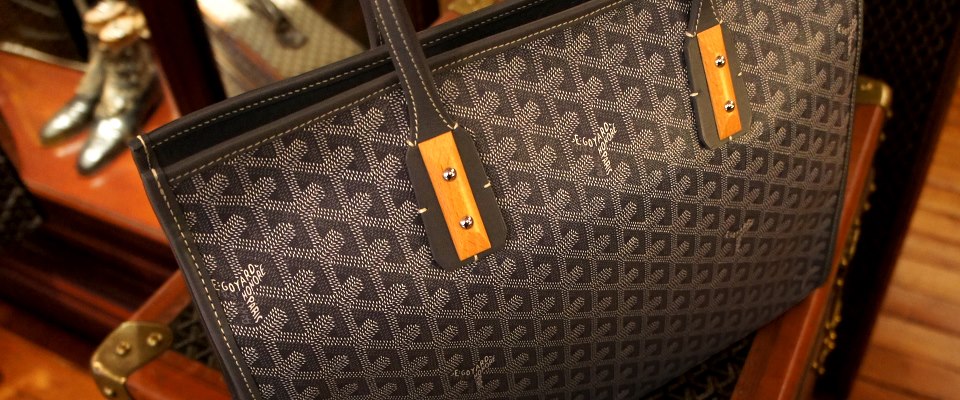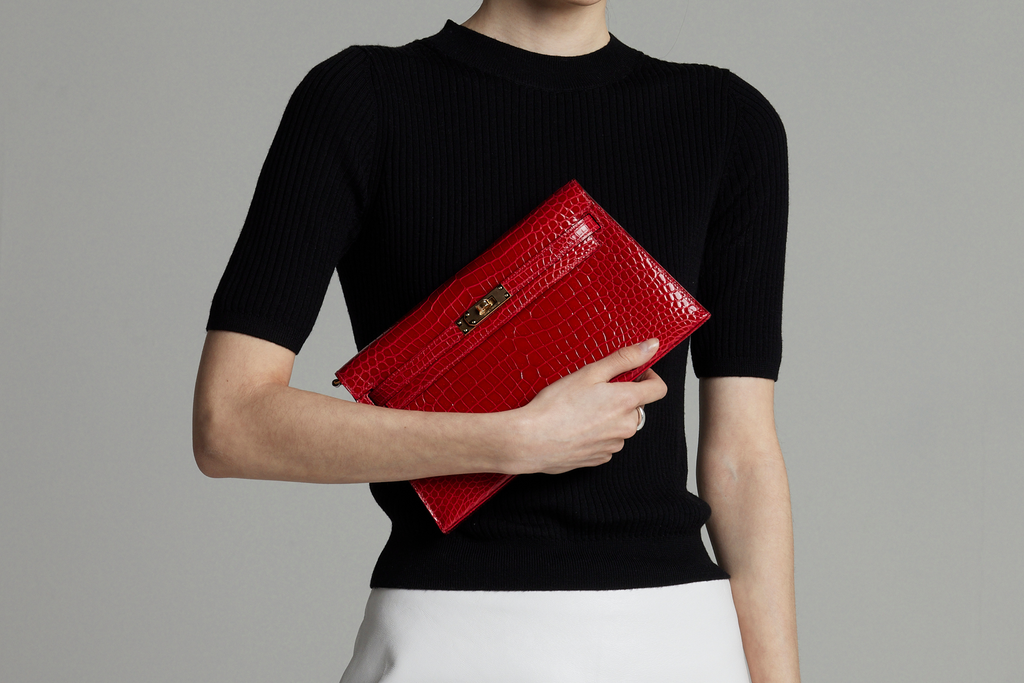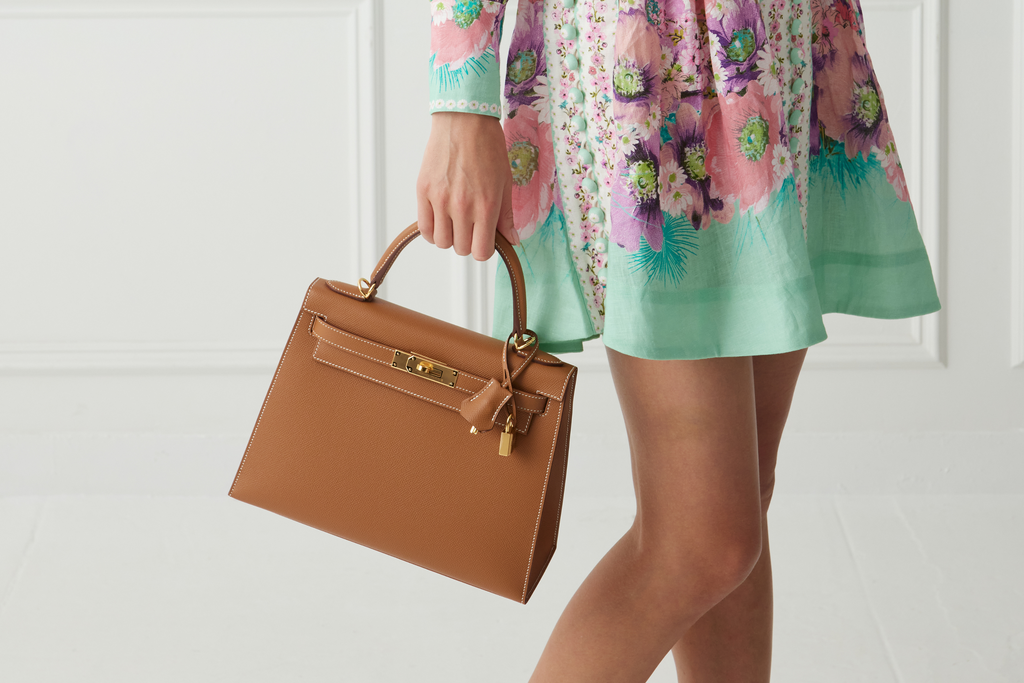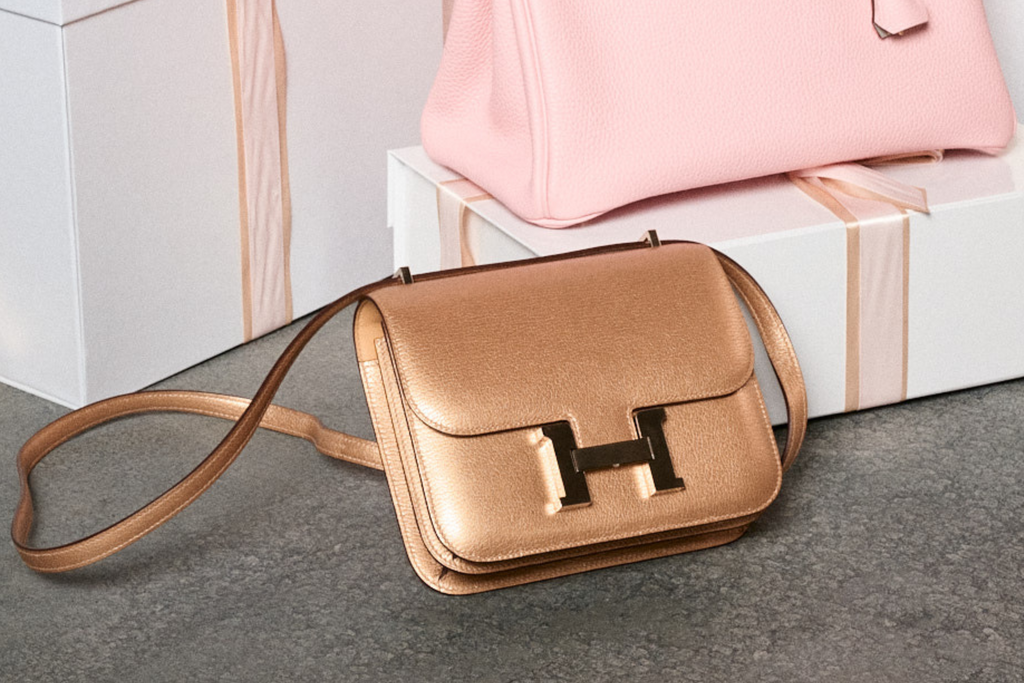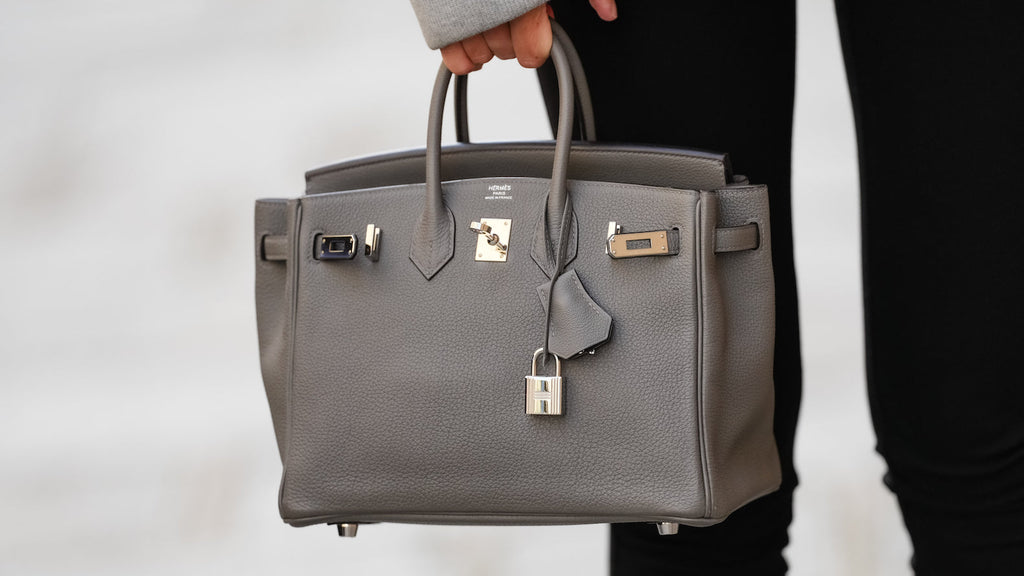Navigating the Niche Auction World of Hermes Bags
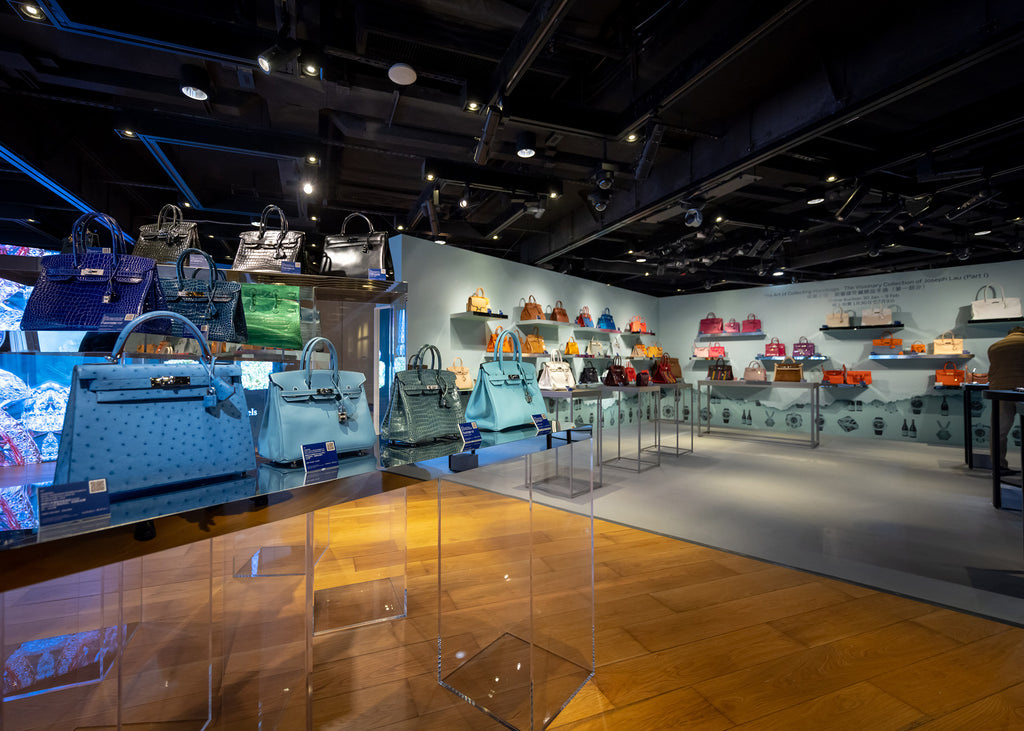
Buying an Hermès bag is one of the hardest things to do in the luxury fashion world. It’s not the hefty price tag that makes purchasing the highly coveted Hermès bags such an arduous undertaking, but the design house’s scarcity strategy. The manufactured scarcity is one of the primary reasons Birkin bags are so expensive. Traveling to the company’s flagship boutique in Paris cannot guarantee the chance to purchase a bag, let alone the style, size, or color you want. Therefore, many collectors turn to Hermès auctions or reputable resellers.
Whether you choose an Hermès bag auction or a resale dealer, it is essential to choose wisely. Deal only with a company with a sterling reputation for honesty and authenticity to protect yourself from counterfeit bags or other fraud. There are trustworthy auction houses that have earned excellent reputations, but there are reasons friends don’t let friends auction luxury bags. Let’s explore some Hermès auction cons.
The Allure and Risks of Hermès Bag Auctions
Auctions are exciting. They pit many potential buyers against one another to strategize and compete for the winning bid. Your adrenaline flows, and the thrill of the chase can lead you into bidding more than you intend. Who hasn’t bid more for something on eBay than they would ever pay as a stated price? Hermès bag auctions at a reputable auction house like Christie’s or Sotheby’s can be thrilling. You never know who you are bidding against – is it a celebrity, an uber-wealthy notable from a faraway land, or a close friend also participating in the auction. You don’t know if there are multiple bidders or just one other determined bidder. It could happen. But wanting to beat the competition can lead to reckless bidding, a serious Hermès auction con.
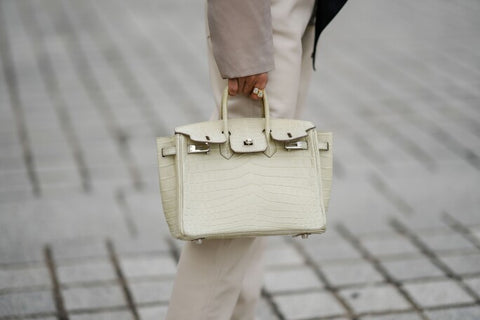
The Competitive Nature of Auctions: A Buyer’s Dilemma
Auctions are exciting. They are carefully designed to maximize the sense of competition and to drive the bidding ever higher. There is an entire psychological field devoted to the study of competitive bidding and bidding strategies. Buyers must think fast and respond quickly to the auctioneer to stay in the hunt. They try to bluff other bidders and the auctioneer about how much money they can spend and how much they really want what they’re bidding on. An Hermès bag auction can be intoxicating. But throwing around tens of thousands of dollars when intoxicated is not a wise move if you have limits on your budget.
The competitive nature of bidding on a designer bag auction quickly drives concerns about size or color out of your mind. Let’s say you had your heart set on an Hermès bag in Rose Confetti, but the auction is for a bag in Mauve Sylvestre. If you were shopping in a store, you’d likely keep looking for the bag you want. But at auction, the emotions can run away with you until you find yourself bidding far too much for the color you didn’t really want. And remember — every bid you make is entering into a legal agreement.
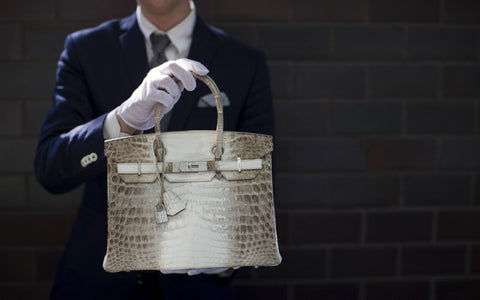
Understanding the True Cost of Buying At Auctions
Before you can participate in an Hermès auction with a premiere auction house, you may be required to provide extensive financial information and post a deposit to ensure your ability to pay the winning bid should you win. The deposit is refunded in full three weeks following the auction if you do not win.
If you have never participated in an auction, they seem pretty simple. A beautiful bag is offered, and several people compete to buy it. The highest bid wins. But if you win an Hermès bag auction, you’ll soon discover that the winning bid is just the beginning of the costs you’ll pay.
The Hammer Price is the auction’s winning bid. Let’s say the gorgeous Birkin 25 in gold Epsom leather that you have your heart set on gavels down at $32,000, and you won! But that’s not what you’ll pay. You also need to pay the Buyer’s Premium, a percentage of the Hammer Price that covers various expenses. Sotheby’s and Christie’s Buyer Premium (including the Overhead Premium) is a staggering 26% on any item whose Hammer Price is $1 million dollars or lower. So now, the price you pay for the bag you won with a $32,000 bid costs $40,320. On top of this, you’ll pay top dollar shipping costs as well as applicable sales tax, VAT (value-added tax), customs fees, consumption tax, luxury tax, and excise tax. Whew!

Understanding the True Cost of Selling At Auctions
Auction houses publish the price of every item sold in an auction inclusive of the Buyer’s Premium. In the example above, the sold price of the Birkin 25 in gold Epsom is published at $40,320. For a seller this is deceiving, since the net to the seller will only be based on $32,000, or the price net of Buyer’s Premium. From this, the auction house may charge a Seller’s Premium which could be up to 10% of the pre-Buyer’s Premium selling price, as well as photography fees, marketing fees and other costs. These costs are detailed in the agreement with the auction house and must be reviewed carefully.
Auction houses always urge sellers to start with a low opening bid and reserve. This is done to stimulate bidding. While rare vintage items or under-priced items can be bid up substantially at auction, these account for a small percentage of items offered. Many items in an auction get one or two bids, at the opening price or one increment higher leading to seller disappointment. For example, if a seller is hoping to realize $30,000 on a handbag, the auction house with seller approval may set the opening bid and reserve at $20,000 (before Buyer’s Premium). This is a high risk for sellers because there is no guarantee that the bidding will get to $30,000. Regardless of the amount of the bid, the auction house always gets its Buyer’s Premium, as well as the additional seller’s fees.
If a bag gets no bids, the auction house accepts offers from potential buyers and passes them to the seller. Since the opening bids are usually set below seller’s expectations, most offers are “low ball” and not acceptable to the seller.
Finally, auction houses almost always consign bags from clients. They do not purchase outright. Since auctions are done either quarterly or semi-annual, the auction house holds the items for three to six months until post-auction. Should a seller decide it wants its item back prior to the auction, the auction house charges the seller at or near the Buyer’s Premium of the opening bid.
Why Choose Madison Avenue Couture for Your Hermès Bag Purchase
While Madison Avenue Couture doesn't offer the excitement of competitive bidding, we think the genuine thrill of being able to choose the precise size, style, color, leather, and hardware of your dream bag is pretty thrilling. We offer an extensive selection of authentic Hermès bags and accessories. With access to all the bags on our website, we can provide additional photographs and videos, as well as schedule Facebook or showroom appointments.
Unlike at an Hermès bag auction, the price you see here is what you pay. If your state charges sales tax, we collect that. Otherwise, there are no added costs or premiums. We offer personalized concierge services, and we will help you locate the bag of your dreams if we don’t have it in stock. We’ll even have a dedicated seller walk through the process with you, answer questions, and help you learn more about the bags you want.
When you shop with Madison Avenue Couture, all bags and accessories are guaranteed to be authentic. We provide you, on request, our third-party certificate of authenticity and in many cases, the redacted original receipt. Some Hermès bag auctions cannot provide either a third party authenticity certificate or a receipt.
Why Choose Madison Avenue Couture to Sell Your Hermès Bag
Madison Avenue Couture is the largest online seller of new and never worn Hermes bags in the United States and one of the largest in the world. We buy and consign bags. More than 90% of consigned bags are sold within our consignment period. Therefore, Madison Avenue Couture is likely to have sold a consigned bag faster than an auction house first offers a bag for auction.
Furthermore, we focus on seller satisfaction. We work closely with sellers/consignors to set a price that is realistic in the marketplace, while consistent with the seller’s expectations. In our opinion, the adrenaline rush of a consignor seeing their item sold at the price they want is better than the thrill of the auction.
Making an Informed Decision: Auctions vs. Madison Avenue Couture
There is no denying that buying and/or selling at auction can be a thrilling experience. But for buyers, the Buyer’s Premium makes many bags substantially higher than buying from a trusted dealer. Furthermore, since auction houses aggregate what is offered to them and do not curate the auction, a buyer may compete for a beautiful bag that may not be what is really wanted.
For sellers, the amount of the final bid may be substantially lower than expected. Months may elapse before the auction and payment, even if the bag sells, is more than a month post auction. Should the buyer not pay, the auction house returns the bag to the seller.
Madison Avenue Couture eliminates all these issues and offers the joy of buying and selling bags with full knowledge in hand.
The choice is yours.





















